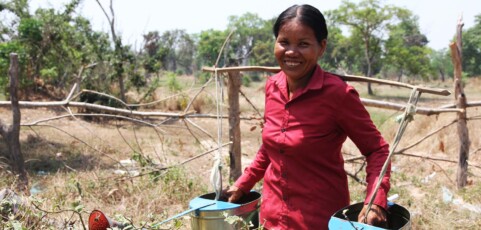This document summarises case studies from ten countries through ActionAid’s approach to climate resilient sustainable agriculture, which incorporates agroecology in a human rights framework. Based on these experiences ActionAid recommends to increase investment in agroecology, as part of a comprehensive human rights based approach:
- In particular in ensuring public agriculture research works with nature, taking cognisance of the natural ecological functioning;
- That public agriculture scientists are encouraged to work with farmers to define their research priorities, disaggregating the priorities of male and female farmers;
- That extension agents are trained on sustainable agronomic practices and farm management, which can have significant benefits in terms of building resilience, adapting to climate change, and improving production and food security;
- Of course, all this needs to be underpinned by support for smallholder farmers’ organisations, including women farmers’ unions, to both engage effectively with markets and with government to influence public policy in their favour.



